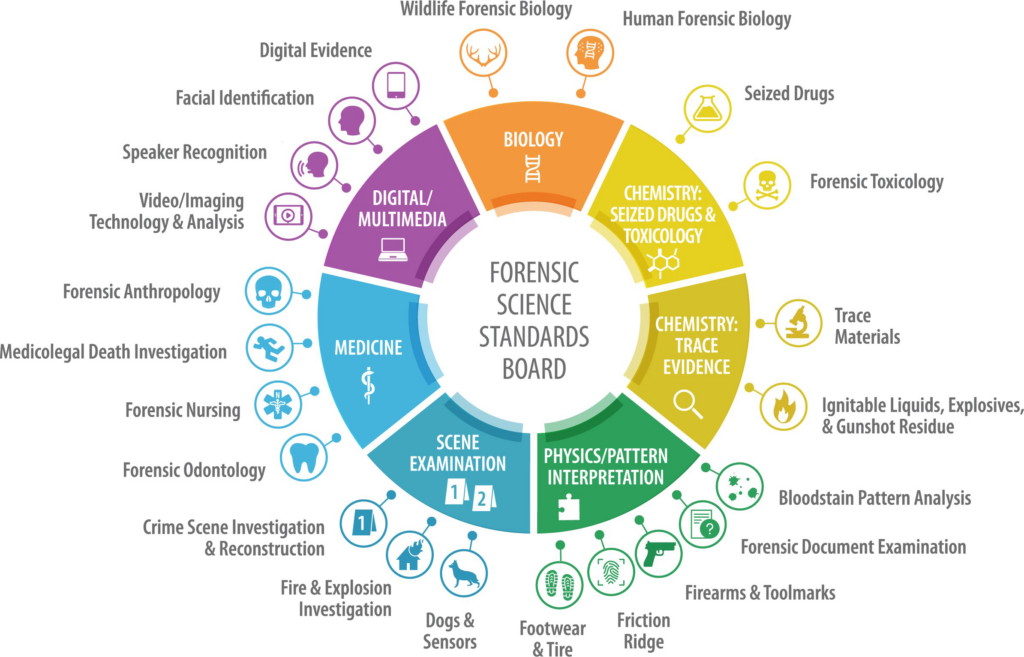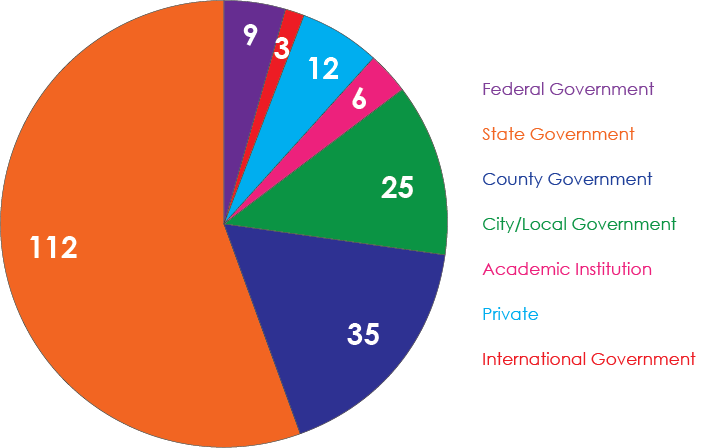 As a response to the 2009 National Research Council (NRC) report, Strengthening Forensic Science in the United States: A Path Forward, the Organization of Scientific Area Committees for Forensic Science (OSAC) was established in 2014 in collaboration with the National Institute of Standards and Technology (NIST) and the United States Department of Justice (DOJ). Their main objective is to address some identified issues highlighted in the NRC report and develop discipline-specific standards to improve the U.S.’s use of forensic science.
As a response to the 2009 National Research Council (NRC) report, Strengthening Forensic Science in the United States: A Path Forward, the Organization of Scientific Area Committees for Forensic Science (OSAC) was established in 2014 in collaboration with the National Institute of Standards and Technology (NIST) and the United States Department of Justice (DOJ). Their main objective is to address some identified issues highlighted in the NRC report and develop discipline-specific standards to improve the U.S.’s use of forensic science.
Currently, OSAC has over 800 volunteer members and affiliates consisting of forensic science practitioners, academic researchers, laboratory management, and experts in legal, quality, human factors, measurement science, and statistics. Each member and affiliate contribute to OSAC’s mission through their knowledge, skills, abilities, and expertise in their field to strengthen forensic science practices.
In addition, representative(s) from accrediting bodies including A2LA are invited to participate in OSAC’s Quality Infrastructure Resource Committee. A2LA has designated staff to join OSAC’s Seized Drugs Subcommittee which focuses on standards and guidelines pertaining to the examination of evidence aimed at identifying drugs and related substances. Furthermore, designated A2LA staff also contributes to the Forensic Science Standards Board’s Quality Task Group providing a quality-focused perspective.

To achieve their goal, this committee facilitates the development of standards through the formal standards developing organization (SDO) process. There are two types of standards: SDO-published standards and OSAC proposed standards. Both types are evaluated through a thorough technical and quality review process. To aid in the advancement of forensic science, OSAC encourages the forensic science community to voluntarily implement these standards into their policies and procedures.
The OSAC Registry serves as a repository of selected SDO published and OSAC Proposed Standards that have received approval and endorsement from OSAC for implementation. Currently, the registry contains a total of 230 standards. Among these, there are five standards that are considered multi-discipline.


According to information gathered by OSAC, over 230 forensic science service providers have implemented standards on the registry. This clearly indicates that forensic science service providers are working towards improvements aimed at increasing quality, maintaining integrity, and adhering to best practices, and the OSAC Registry provides an additional resource to accomplish those objectives.
For more information about OSAC and ways that you can become more involved, visit https://www.nist.gov/adlp/spo/organization-scientific-area-committees-forensic-science.
